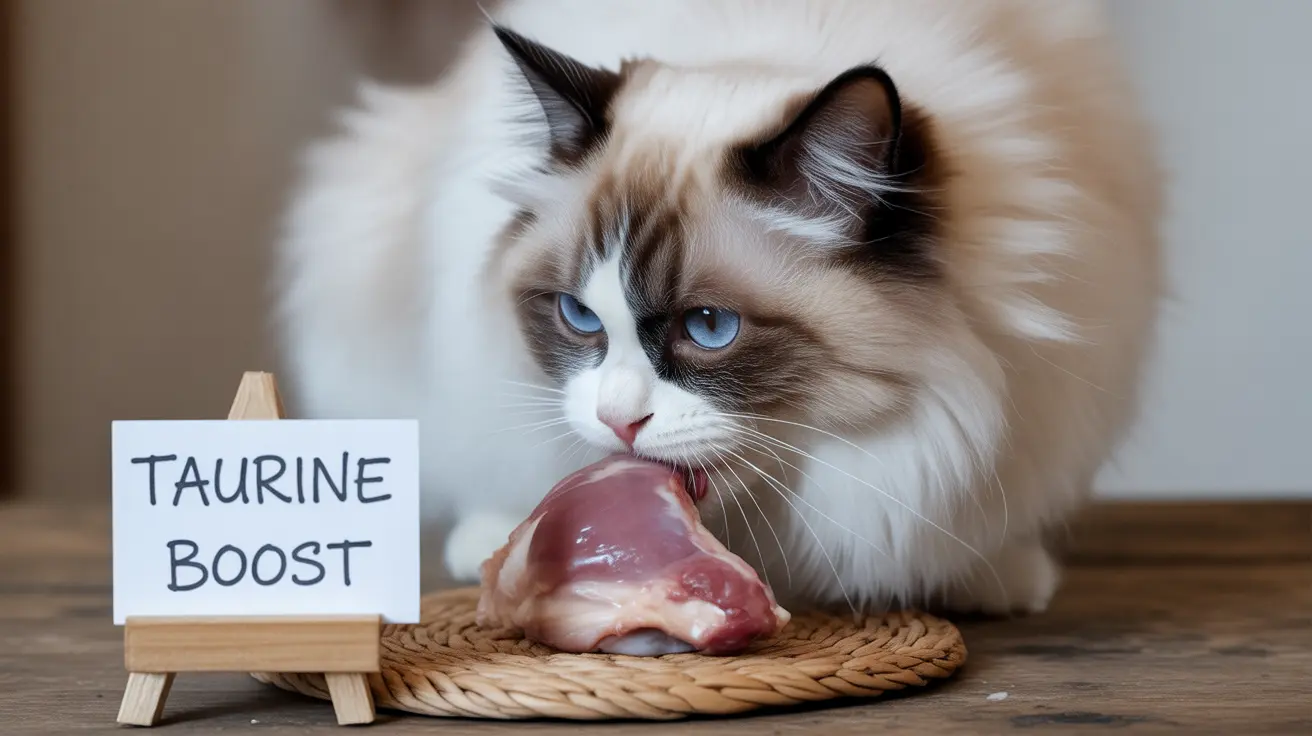Introduction
Understanding where taurine comes from for cats is crucial for every feline owner, as this essential amino acid plays a vital role in your cat's health. Unlike many other animals, cats cannot produce sufficient taurine in their bodies and must obtain it through their diet. This comprehensive guide explores the natural sources of taurine and explains why it's so critical for your cat's wellbeing.
From heart health to vision maintenance, taurine's importance in feline nutrition cannot be overstated. Let's dive into the various sources of this vital nutrient and how you can ensure your cat gets enough.
Primary Natural Sources of Taurine
Animal-Based Protein Sources
The richest natural sources of taurine for cats come from animal tissues, particularly muscle meat and organs. Dark meat contains significantly higher levels of taurine than white meat, making it an excellent dietary choice for cats.
- Chicken heart and dark meat
- Turkey thighs and legs
- Beef heart and muscle meat
- Fresh fish, especially salmon and sardines
- Shellfish like shrimp and clams
Organ Meats: Nature's Taurine Powerhouse
Organ meats are particularly rich in taurine, with heart tissue containing the highest concentrations. A single serving of chicken heart can provide more taurine than several servings of muscle meat. However, organ meats should be fed in moderation as part of a balanced diet.
The Impact of Food Preparation on Taurine Content
The way you prepare your cat's food can significantly affect its taurine content. Cooking, especially boiling or stewing, can reduce taurine levels by up to 65%. If you prepare homemade cat food, consider these factors:
- Raw or lightly cooked meat retains more taurine
- Always include cooking juices or broth
- Avoid prolonged cooking times
- Consider supplementation for cooked diets
Commercial Cat Food and Taurine
Most commercial cat foods are fortified with synthetic taurine to ensure adequate levels, regardless of the cooking process. When choosing commercial food:
- Look for "complete and balanced" on the label
- Check that taurine is listed in the ingredients
- Choose products that meet AAFCO standards
- Consider wet food, which typically contains higher taurine levels
Signs of Taurine Deficiency
Recognizing taurine deficiency early is crucial. Watch for these symptoms:
- Vision problems or blindness
- Heart issues (dilated cardiomyopathy)
- Poor coat condition
- Reproductive problems
- Delayed growth in kittens
Frequently Asked Questions
Where does taurine naturally come from in a cat's diet?
Taurine naturally comes from animal-based proteins, particularly organ meats, dark muscle meats, and seafood. The highest concentrations are found in heart tissue, followed by dark meat and fish.
Which meats and organs have the highest taurine levels for cats?
Chicken heart, turkey dark meat, and beef heart contain the highest taurine levels. Other good sources include chicken thighs, salmon, and shellfish.
Can cooking affect the taurine content in cat food, and how should I prepare meat to preserve it?
Yes, cooking can significantly reduce taurine content. To preserve taurine, use shorter cooking times, include cooking liquids, and consider serving some foods raw (with appropriate food safety precautions).
Do commercial cat foods contain enough taurine, or should I supplement my cat's diet?
Quality commercial cat foods meeting AAFCO standards contain adequate taurine through supplementation. Additional supplementation is usually only necessary for cats on homemade diets.
What are the signs of taurine deficiency in cats and how can it be prevented?
Signs include vision problems, heart disease, poor growth, and reproductive issues. Prevention involves feeding a balanced diet with adequate taurine through commercial cat food or properly supplemented homemade diets.
Conclusion
Ensuring your cat receives adequate taurine is essential for their health and longevity. Whether you choose commercial cat food or prepare homemade meals, understanding where taurine comes from and how to preserve it in your cat's diet will help maintain your feline friend's optimal health. Always consult with your veterinarian about your cat's specific dietary needs, especially if you're considering a homemade diet.






